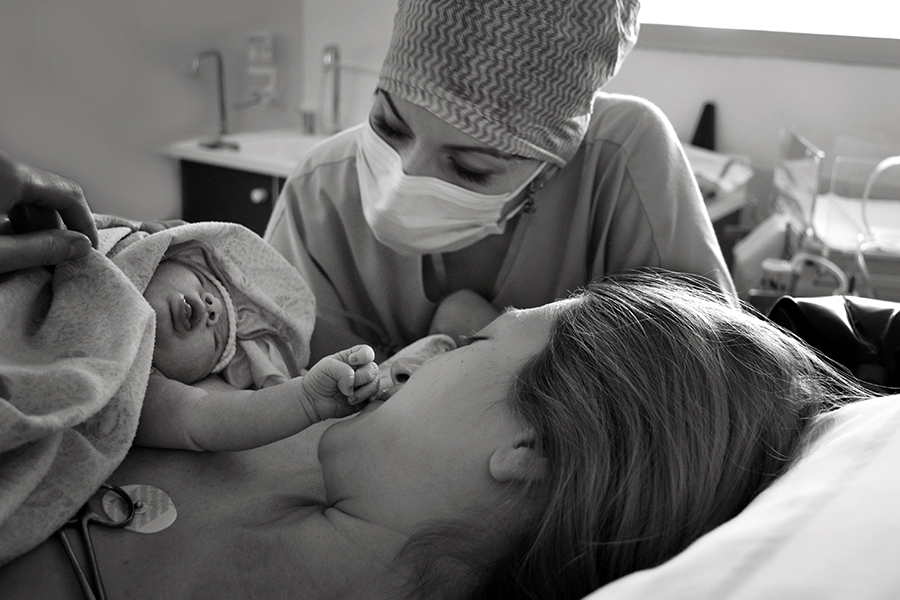A new-born baby is born with a few reflexes. These help them to survive and adapt to the world outside the womb. The startle reflex, for example, helps them to protect themselves from loud noises. Babies will also cry when they are hungry or in need of comfort.
Over the first few weeks and months, babies learn to control their bodies and start to develop their own personalities. They will learn to smile, coo, and babble. And, as they learn to communicate, they will also start to cry differently to communicate their needs.
Moms can help their babies learn and grow by responding to their cues and providing plenty of love and attention.
Newborn babies are a lot of work, but they are also a lot of fun. Here is a look at what newborns babies do in those first few weeks.
During the first week, new-borns will sleep a lot – up to 16 hours a day. They will also eat frequently – every 2 to 3 hours. New-borns will cry, but they will also have periods of contentment.
By the second week, newborns will start to wake up more and be more alert. They will also begin to track objects with their eyes and coo and make other sounds.
During the third and fourth weeks, newborns will continue to wake up more and be more alert. They will also start to lift their heads and chests when lying on their stomachs. They will also start to reach for objects.
By the fifth and sixth weeks, newborns will be able to hold their heads up for long periods of time. They will also start to sit with support. They will also start to show more emotion and may even laugh out loud.
Newborns are constantly changing and growing, so there is always something new to see and learn.
What Newborns Babies Do
As a new mom, you may be wondering what to expect from your newborn in those first few weeks. Here’s a rundown of some of the things you can expect from your little one.
- Sleep: Newborns sleep a lot, up to 16 hours a day. But don’t expect them to sleep through the night just yet. They’ll likely wake up every few hours to eat.
- Eating: Newborns need to eat often, about every two to three hours. They’ll let you know when they’re hungry – they’ll fuss or cry. Breastfeeding is best for babies, but if you’re formula feeding, you’ll need to make sure you’re using the right type of formula and preparing it correctly.
- Elimination: Newborns typically have several wet diapers a day and may have a bowel movement after each feeding.
- Development: Newborns don’t do much other than eat, sleep, and poo in those first few weeks, but you’ll start to see some development in their abilities. They’ll slowly be able to hold their head up and focus on objects.
- Crying: Newborns cry a lot, it’s their only way to communicate. They may cry when they’re hungry, tired, wet, or just want to be held. It’s important to try to figure out what they’re trying to tell you.

As a new mom, it’s normal to feel overwhelmed and exhausted in those first few weeks. But take heart in knowing that this is a temporary phase and soon enough you and your baby will be into a more regular routine.
When a baby is first born, they are placed on their mother’s chest. It is important for the baby to be held close to the mother so that they can smell her and feel her warmth. The baby will instinctively start to root around and search for the nipple. Once the baby finds the nipple, they will start to suck.
It is important to never shake a baby. Shaking can cause bleeding in the brain and can be fatal. If you need to wake up a sleeping baby, gently tickle their feet or blow on their face.
Newborn babies are fragile and need to be handled carefully. Be sure to support their head and neck when you pick them up. Keep them close to your body and never leave them unattended.
For the first few weeks, it is important to keep the baby close to you. They will need to be fed often and will need to sleep close to you so that you can keep an eye on them. After a few weeks, you can start to slowly introduce them to other people and new surroundings.
Would you like to know more about your baby? Go to our next article!
Would you like to know more about your pregnancy? Visit our Mumgazine YouTube channel!


Needed a quick place to log in to my 600bet account and 600betlogin sorted me right out. No messing about, straight to the point. If you’re looking for it, here you go: 600betlogin
Just wanted to share my experience with gamvip88. Found some cool games I hadn’t seen before. Customer support was pretty responsive when I had a question too. Definitely putting gamvip88 on my list of go-to spots for some fun.
P777game hooked me up with some serious fun, the games are great. If you’re looking for a bit of action check out p777game
Looking for a new spot to play. Has anyone had experience with 0007win? Good odds? Fast withdrawals?